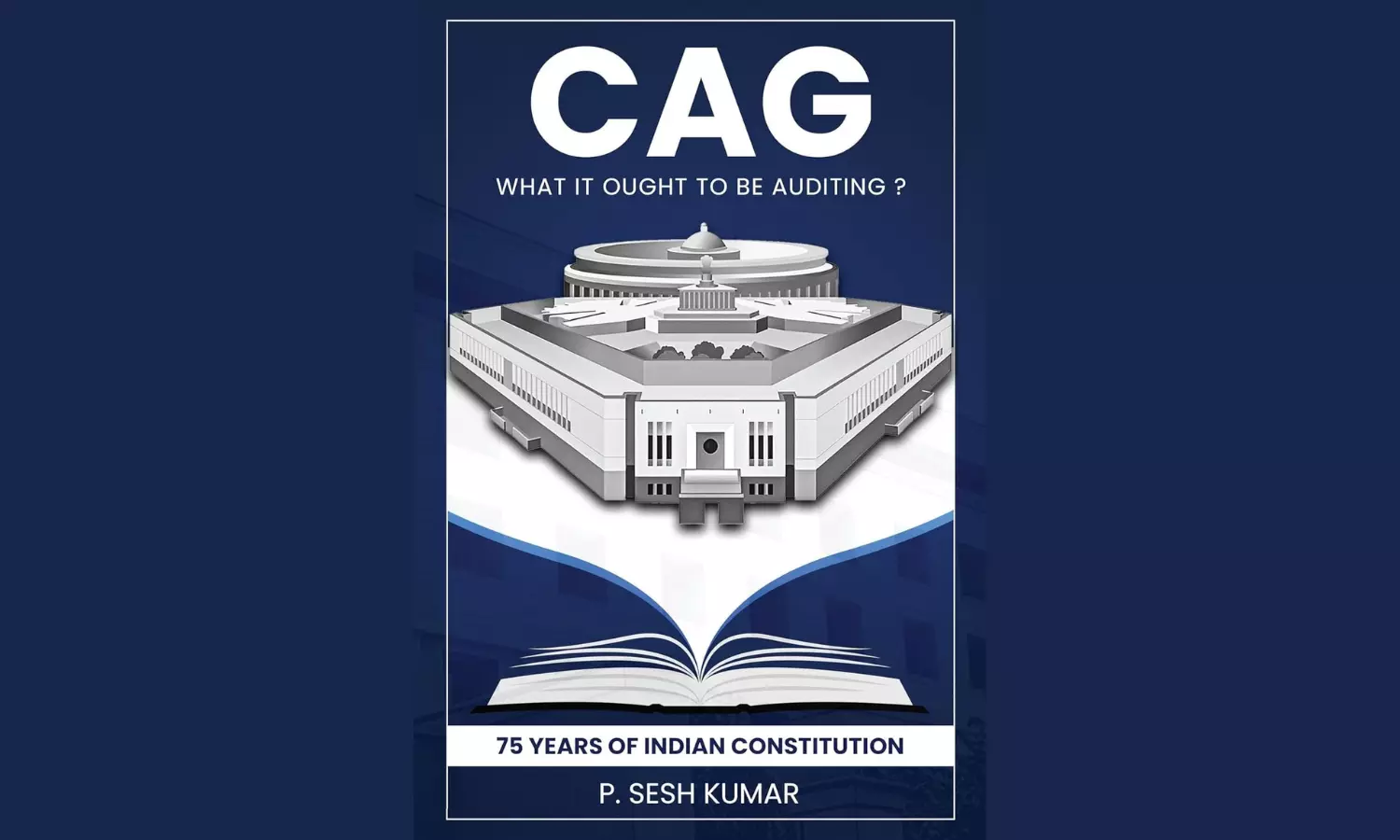
Guwahati: Former Director General of the CAG has called for auditing the judicial delays in the country with aims to push reforms in judiciary. He underlined the scale of judicial delays in the country has acquired grave proportions.
“Given the gravity of the situation, the Comptroller and Auditor General (CAG) of India should conduct a limited performance audit of the justice delivery system to systematically evaluate case disposal rates, procedural inefficiencies, human resource and technical de¬ficiencies, infrastructure issues and resource utilisation across the country,” wrote P. Sesh Kumar in his new book ‘CAG: What It Ought To Be Auditing?’.
Kumar stated that “such an audit could identify bottlenecks by examining case flow management, adjournment patterns and judicial vacancies.” “The audit could pinpoint speci¬fic inefficiencies that hinder timely justice delivery. A performance audit could quantify the economic losses (not presumptive losses) incurred due to prolonged litigation, as well as the ¬financial burden placed on the prison system due to excessive undertrial detention,” he added.
The CAG’s ¬findings could provide concrete recommendations, which are not already in the domain or knowledge of the government, to enhance judicial efficiency, focusing on improved case management, technology adoption and reducing frivolous litigation, argued the former auditor, who has served as a secretary of a Supreme Court appointed panel for reform in National Medical Council.
He stressed that “India’s judicial delays are not merely a technical inefficiency but a crisis that undermines democracy, economic stability and social justice.” “The problem demands urgent action, combining legislative reforms, digital transformation and institutional oversight. A limited but all-India performance audit by the CAG would serve as a powerful tool to hold institutions accountable and drive systemic improvements,” argued Kumar in the book, which has been published by White Falcon Publishing.
Kumar asserted that “ensuring timely justice is not just a legal imperative but a necessity for national progress—without it, India risks eroding the very foundations of its democratic and economic ambitions.” “But again, would the CAG be willing to enter this sensitive domain? Would it have the boldness and courage to engage with the higher judiciary and evolve a consensus to take up this challenging but demanding performance audit never attempted before,” asked the former auditor.
He also argued that the “impact of judicial delays extends beyond individual suffering; it weakens economic growth, discourages investment and undermines governance.” “Businesses operating in India face signi¬ficant legal uncertainty due to prolonged litigation. Contract enforcement remains a major bottleneck, ranking India poorly in global ease-of-doing business indices,” he added.
Kumar also stressed that the government’s inefficiency in managing its legal disputes leads to unnecessary expenditure on prolonged litigation. “The perception of an ineffective judiciary creates public disillusionment, weakens democratic institutions and fuels unrest. Prolonged land and property disputes, particularly those involving marginalised communities, often lead to violent conflicts, thereby exacerbating social tensions,” Kumar stated.
Spotlighting the plight of undertrial prisoners, Kumar quoted the National Crime Records Bureau (NCRB) data, stating “nearly 76% of India’s prison population comprises undertrials—individuals who have not been convicted but remain incarcerated due to protracted court proceedings. Many of these prisoners spend more time behind bars awaiting trial than they would have served if convicted of their alleged offences.”
He also stated that “despite the Law Commission’s recommendation to increase the number of judges to at least 50 per million, vacancies remain a persistent issue. As of 2024, nearly 5,000 judicial positions remain vacant at the trial court level, whilst high courts function at only half their sanctioned strength.”
Kumar pointed out that “many judicial procedures remain archaic, inherited from colonial-era practices that emphasise endless oral arguments, handwritten testimonies and excessive reliance on procedural formalities.” “Ambiguities in legislation further burden the courts, as judges are repeatedly called upon to interpret poorly drafted laws,” stressed Kumar.
A major contributor to judicial delays is the widespread misuse of criminal laws, he added.
“When compared to international standards, the Indian judiciary lags significantly in terms of efficiency and case disposal rates. In countries like Germany and the Netherlands, courts operate with a streamlined system that prioritises timely resolution of disputes,” added Kumar.
